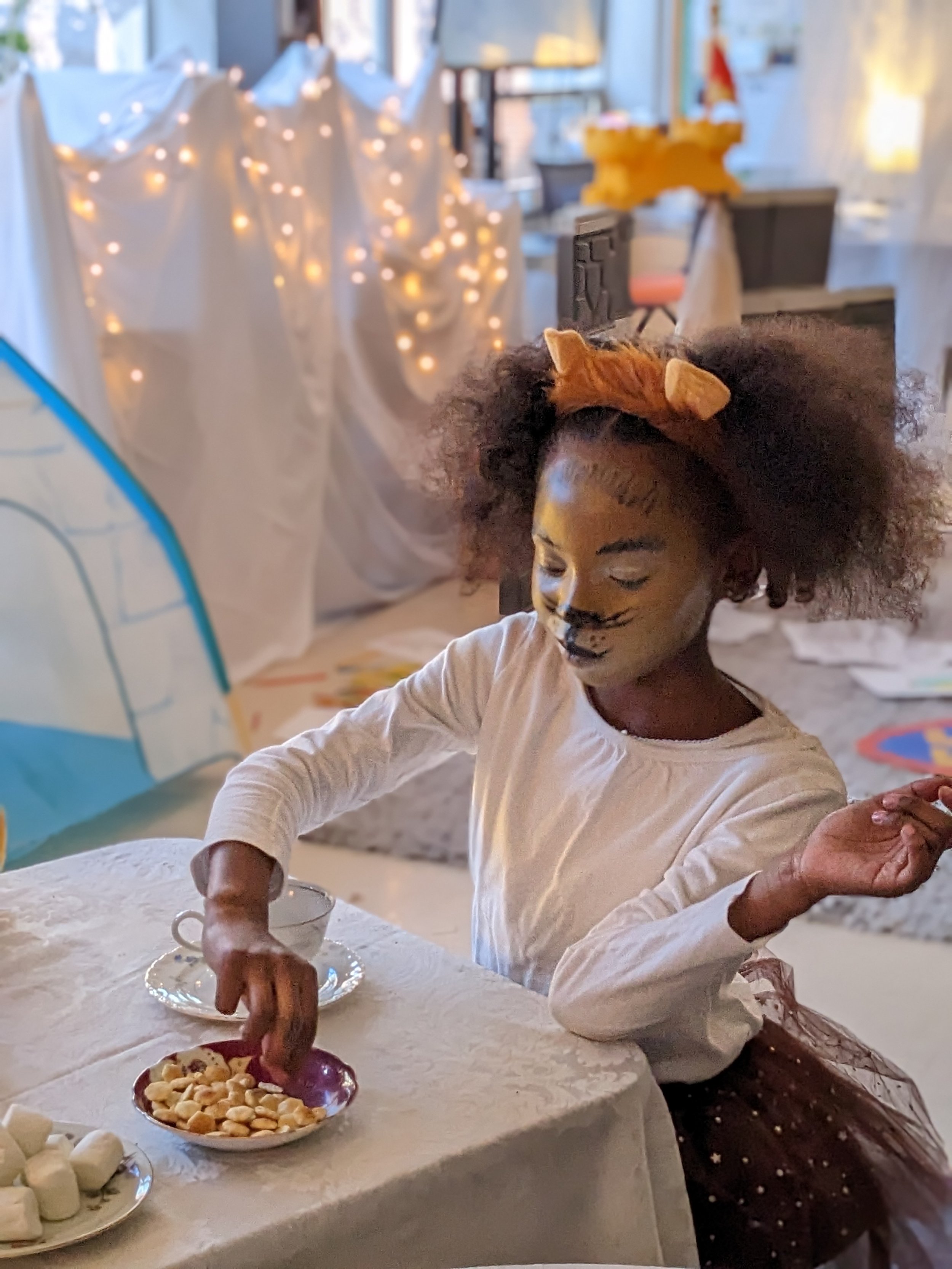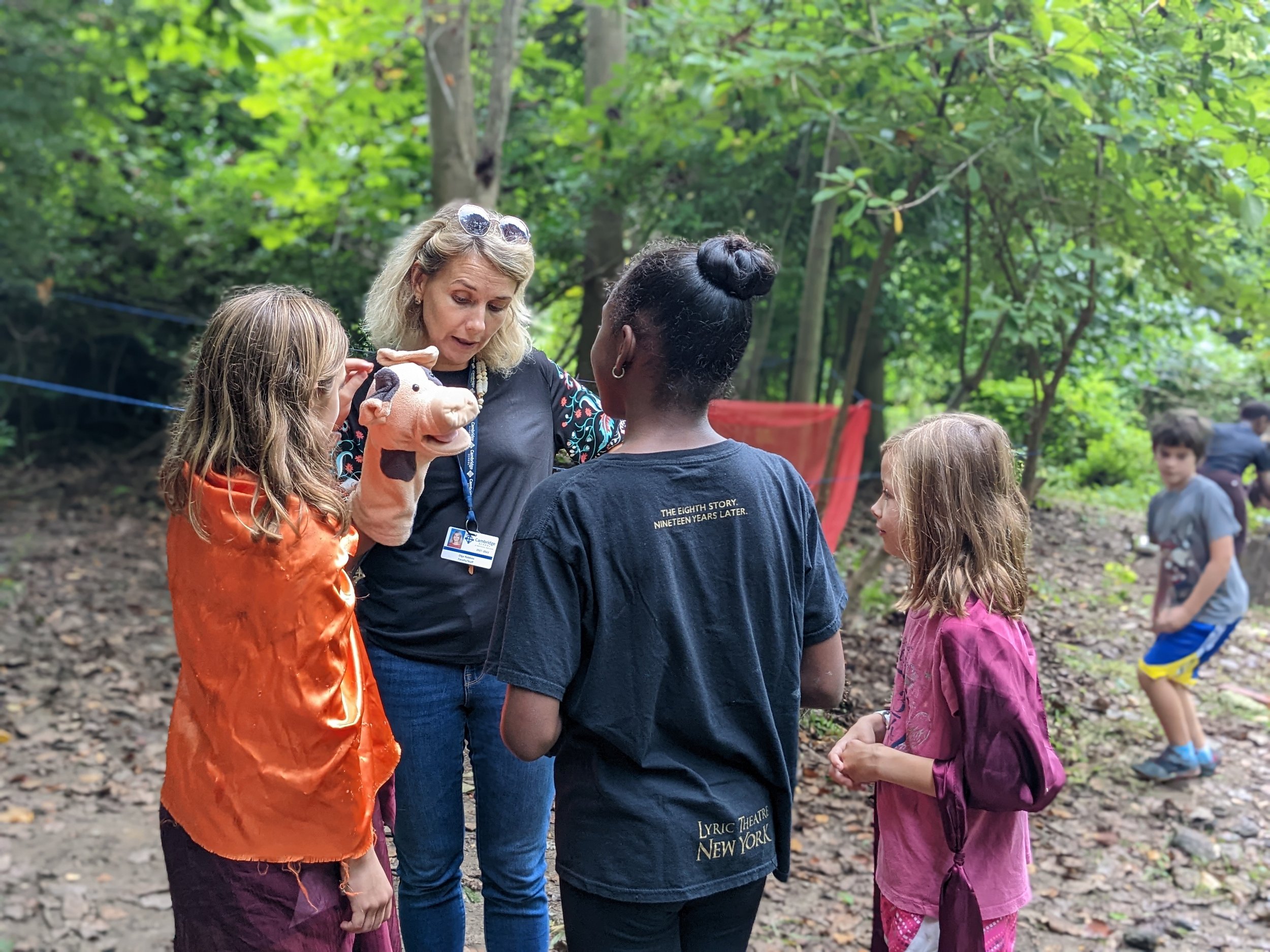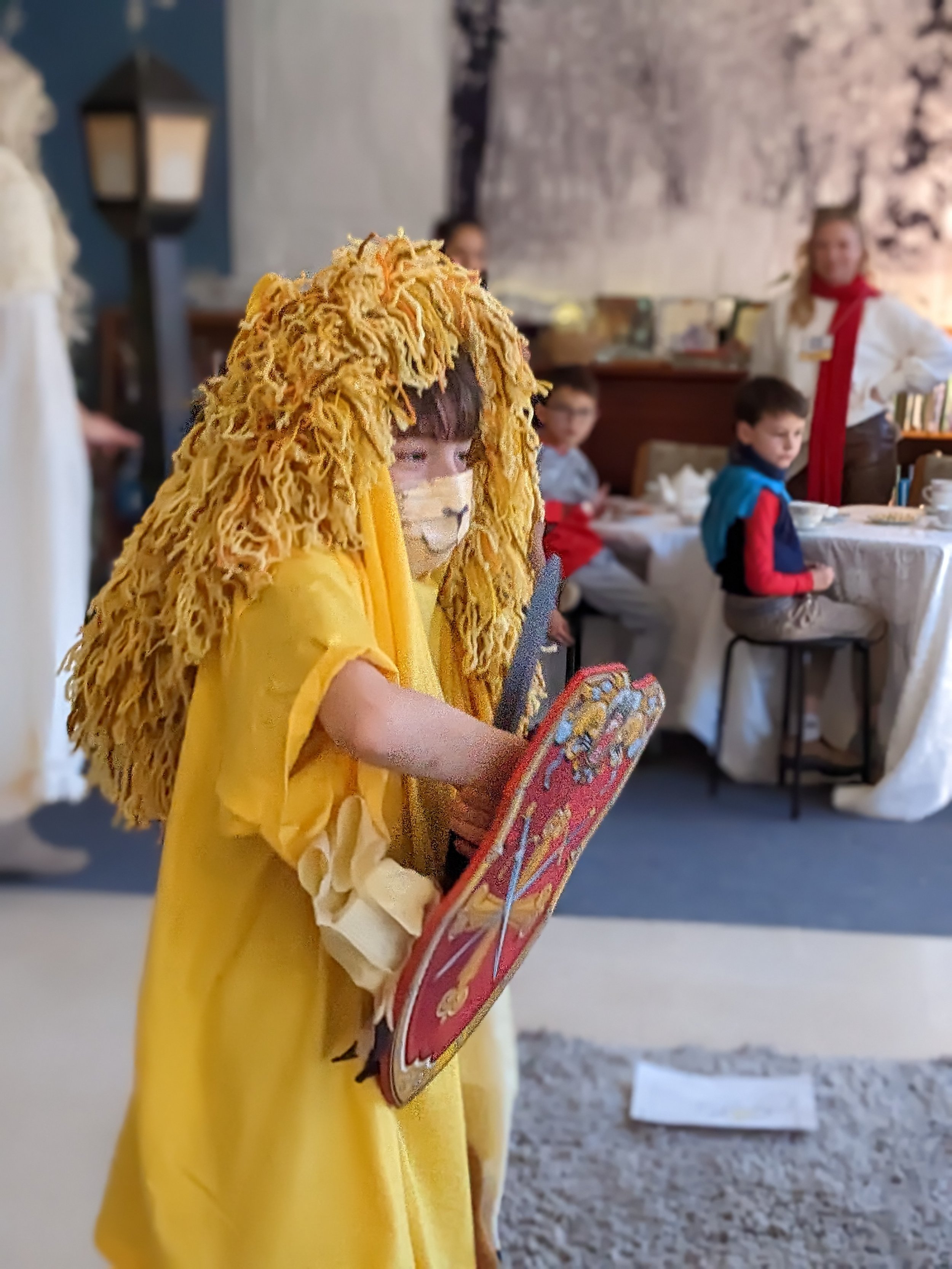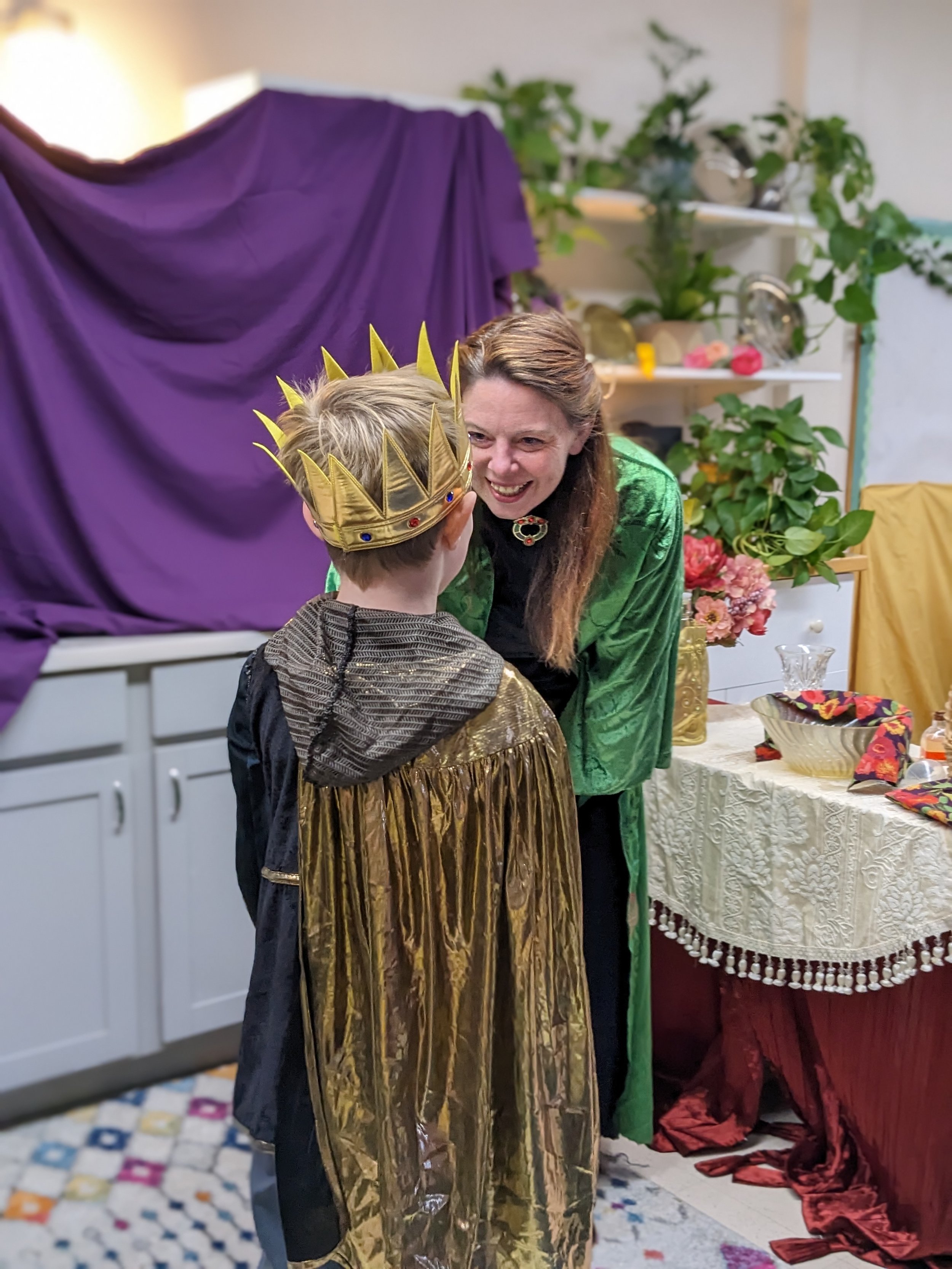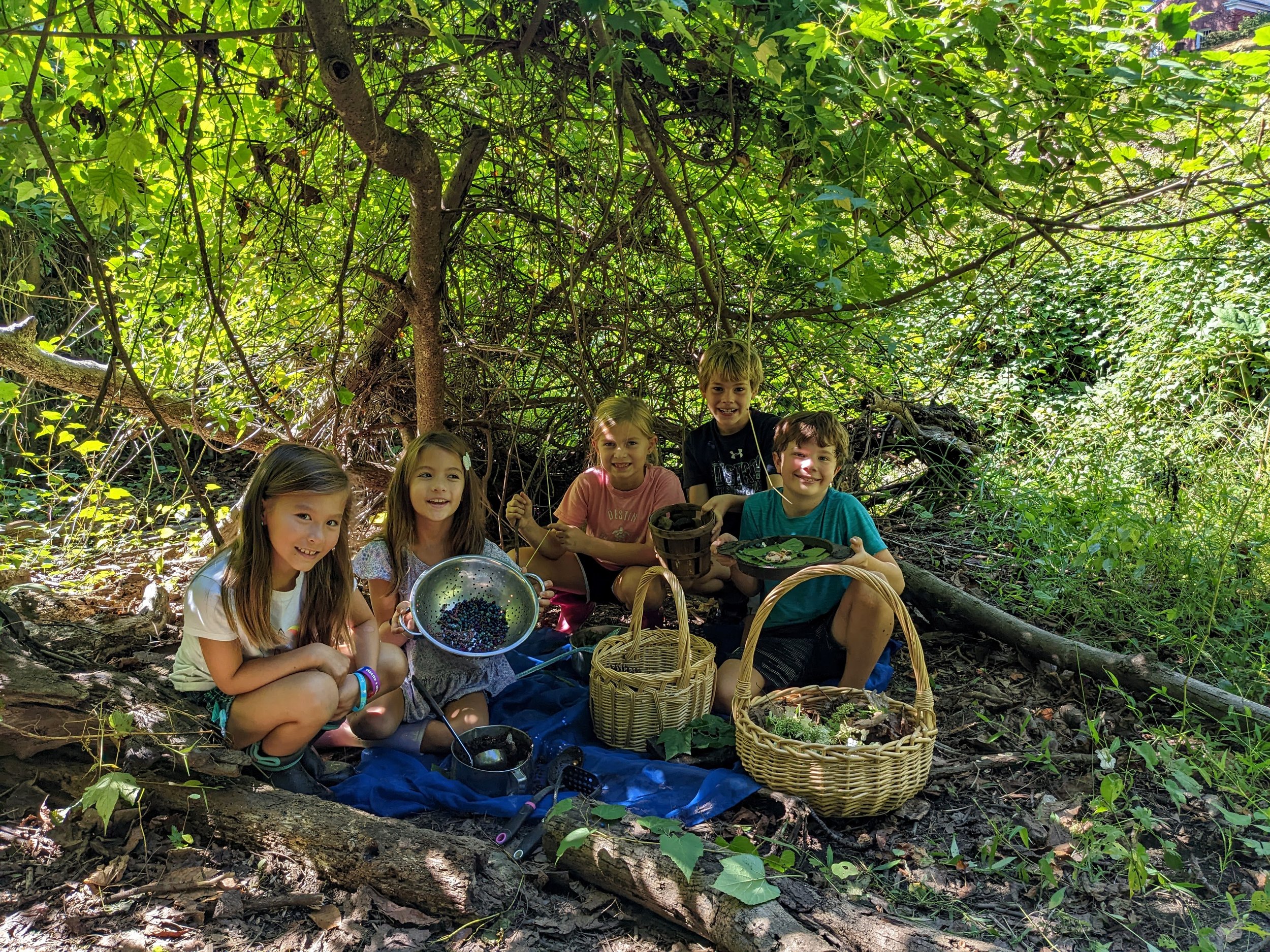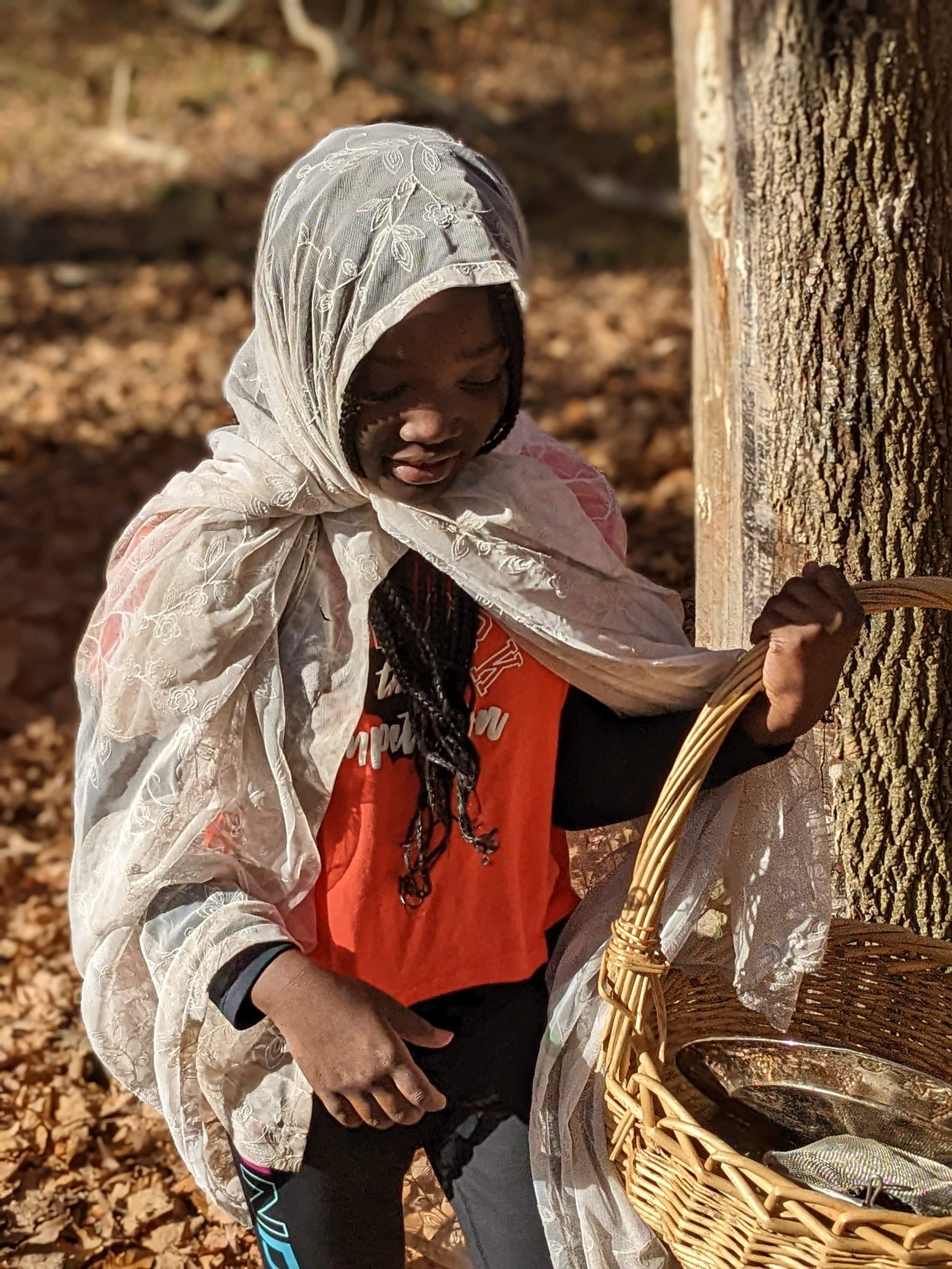The Transformative Power of Imagination
By John Blumenstein, Former Head of School
During my tenure at Cambridge (2011-2021), I recall coming across a very strange word in one of George MacDonald’s 19th century novels (entitled Paul Faber, Surgeon). That word was nephelococcygia (pron. neh-feh-low-kok-sih-jee-ah), which shows up abruptly in the context of MacDonald’s narrative comments about the role of imagination in humanity’s universal search for God. I discovered that nephelococcygia has its origin in an ancient Greek play The Birds, written by Aristophanes (performed in Athens, 414 BC). In this play two human beings convince the birds to build a city in the clouds, and hence the word nephelococcygia came to mean “the act of imagining shapes in clouds.”
“To be human is to imagine, ultimately to experience wonder, mystery, and awe. ”
Exploring this word reminded me of an experience at Cambridge near the beginning of my tenure. Two early elementary age boys, running around during an outdoor break, suddenly stopped to notice the development of unusual cloud formations overhead. They immediately began to imagine shapes of all sorts, including monstrous beasts of course, and they enjoyed witnessing the dynamic process of new shapes replacing old ones. Why do children imagine shapes in clouds? Might this tendency reflect their identities as bearers of God’s image? To be human is to imagine, ultimately to experience wonder, mystery, and awe.
Sheila Mund, who had been teaching kindergartners since Cambridge’s 1st year in Hunt Valley, took hold of the word nephelococcygia and began to teach it to her students, giving them an actual label for something that they were already doing (not to mention the phonetic value of learning a fun 7-syllable word!). Already integral to the kindergarten curriculum was time devoted to experiencing wonder and awe, simply from imagining shapes in the vast cathedral of the sky.
At the end of my tenure at Cambridge, I experienced the blessing of another exercise in human imagination, this time among 8th graders. Scott Buresh, Cambridge’s founder and 8th grade teacher, tasked the class of 2021 with the creation of a set of poems entitled “We Dream A World,” inspired by Langston Hughs’ poem “I Dream A World.” This exercise challenged students to imagine the world, based on their rich 8th grade learning journey that included deep dives into excellent literature, art, and historical accounts related to World War II, the Civil Rights movement, the Vietnam War, the Pandemic, etc. This collection of poems is an amazing testimony to children’s capacity to dream big, especially when their imaginations are being fed with a vision for the good, the beautiful, and the true. My years at Cambridge gifted me with countless memories of children’s imaginations flourishing at every grade level in their learning journeys.
Recently Dr. Martin Luther King, Jr.’s “Letter from a Birmingham Jail” starkly reminded me, however, that we cannot take for granted children’s capacity to imagine nor should we minimize the impact of cultural realities upon the shaping of their imaginations. Writing from a jail cell, Dr. King masterfully addresses a group of pastors who had expressed their discomfort with the strategy of peaceful civil protests that had been met with the brutal treatment and arrest of protesters. Dr. King paints a vivid picture of the realities of racial injustice and oppressive laws that devalued persons of color. At one point in the letter, he dramatically notes the impact upon children’s imaginations as he draws us into the scenario of a father struggling to explain racial injustice and inequities to his daughter:
. . . when you suddenly find your tongue twisted and your speech stammering as you seek to explain to your six year old daughter why she can't go to the public amusement park that has just been advertised on television, and see tears welling up in her eyes when she is told that Funtown is closed to colored children, and see ominous clouds of inferiority beginning to form in her little mental sky, and see her beginning to distort her personality by developing an unconscious bitterness toward white people . . .
The expression “ominous clouds of inferiority beginning to form in her little mental sky” reminds us of how children’s imaginations can be suppressed, oppressed, or even distorted when children are devalued or made to feel inferior.
An environment that values children as persons who bring their own richness to the learning feast is essential to the practice and cultivation of their imaginations. Going on 25 years, Cambridge has maintained its commitment to creating such a learning environment, in which children are valued and in which their imaginations are encouraged to thrive and to flourish, feasting upon excellent forms of human creativity that encourage them to dream and to imagine a world where ultimately goodness, beauty, and truth prevail. May the Lord continue to bless Cambridge in its future growth as a learning environment where children are valued and where their imaginations are therefore free to dream big, where they are challenged to imagine and to discover their own God-given destinies in response to God’s calling as they proceed to high school and beyond. Happy 25th Anniversary! Soli Deo gloria!
“An environment that values children as persons who bring their own richness to the learning feast is essential to the practice and cultivation of their imaginations.”





